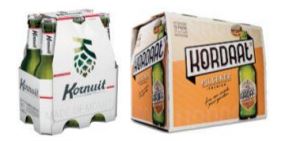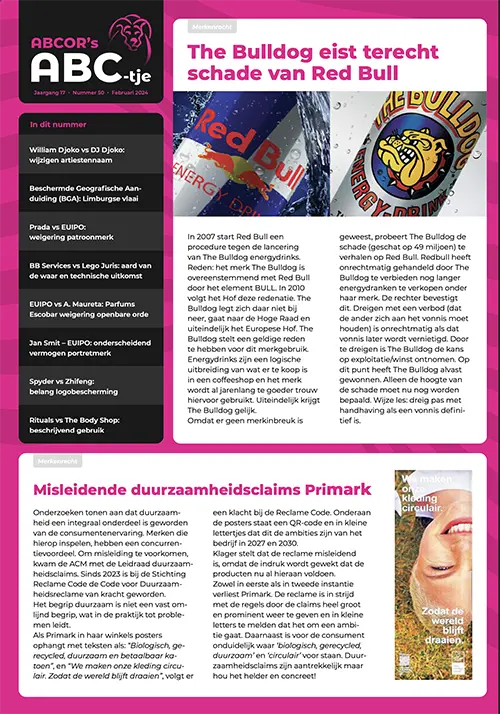Since 2013, Grolsch has been marketing beer under the name KORNUIT. Various trademarks have been registered for this beer, including a word mark. When Lidl introduces a lager with the name KORDAAT, Grolsch takes Lidl to court. Grolsch argues that the trademarks are similar. The beginning is identical (KOR) and emphasis is placed on the beginning of a trademark. Both trademarks have the same length (seven letters), end with -T and consist of two syllables. Lidl’s main defence is that the marks clearly have a different meaning. Dutch word Kornuit translates as ‘buddy’ whereas kordaat means ‘determined’. This clear conceptual difference rules out the possibility of any similarity between the trademarks.
The logical thing for the judge would have been to rule on the conceptual difference first, because it is the only potentially successful argument for Lidl. However, despite the fact that Grolsch disputes that there is a conceptual difference, arguing that the average consumer does not understand the meaning of kornuit, (the archaic word is listed to be removed from the Dutch dictionary), the court miraculously does not take this into account.
The court ruled in this case with an unusual motivation, disregarding of the line of reasoning set out in recent case law. Most striking is the reasoning that the trademarks have little visual similarity, due to the letters ‘NUI’ and ‘DAA’ at the end. The similarity between the two trademarks is so small that there can be no confusion among the public. The claim was rejected.
An incomprehensible decision. Fortunately, Grolsch appealed. It will be interesting is to see how this appeal develops. Almost immediately after the decision, Lidl (of course entirely coincidentally…) started a huge off line campaign in order to load the word KORDAAT. In every commercial break we are told that Kordaat is the beer for tough guys. We are wondering if and to what extent this mega media exposure will influence the case.

